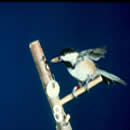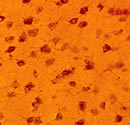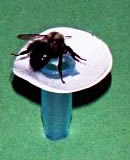
Dr. David Sherry (1950-2023)
Professor Emeritus - Cognitive, Developmental and Brain Sciences
-
Bio
-
Publications
-
Research
Biographical Information
Education
B.Sc. - McMaster University (1972)
M.A. - University of Toronto (1974)
Ph.D. - University of Toronto (1978)
NSERC-NATO Postdoctoral Fellow, University of Oxford (1978-1980)
NSERC University Research Fellow, University of Toronto (1980-1985)
Assistant Professor, University of Toronto (1985-1988)
Associate Professor, University of Toronto (1988-1990)
Visiting Professor, Western University (1990-1993)
Professor, Western University (1993 - present)
Adjunct Professor, Dept of Zoology Western University (1994 - 2012)
Cross-Appointed Professor, Dept of Zoology Western University (2012 - present)
Animal cognition
Neurobiology of memory
Evolution of behaviour
Selected Publications
Martin, R.J. & Sherry, D.F. (2019). Overwinter temperature has no effect on problem solving abilities or responses to novelty in Black-capped Chickadees (Poecile atricapillus). Behavioural Processes, 162, 72-78.
Guitar, N.A. & Sherry, D.F. (2018). Decreased neurogenesis increases spatial reversal errors in chickadees (Poecile atricapillus). Developmental Neurobiology 78, 1206-1217.
Carvalho-Paulo, D., Magalhães, N. G. de M., Miranda, D. de A., Diniz, D.G., Henrique, E.P., Moraes, I.A.M., Pereira, P.D.C., de Melo, M.A.D., de Lima, C.M., de Oliveira, M.A., Guerreiro-Diniz, C., Sherry, D.F. & Diniz, C.W.P. (2018) Hippocampal astrocytes in migrating and wintering semipalmated sandpiper Calidris pusilla. Frontiers in Neuroanatomy doi: 10.3389/fnana.2017.00126.
Phelps, J.D., Strang, C.G., Gbylik-Sikorska, M., Sniegocki, T., Posyniak, A. & Sherry, D.F. (2018). Imidacloprid slows the development of preference for rewarding food sources in bumblebees (Bombus impatiens). Ecotoxicology 27, 175-187.
Sherry, D.F. & Guigueno, M.F. (2018). Cognition and the brain of brood parasitic cowbirds. Integrative Zoology. doi: 10.1111/1749-4877.12312.
Guigueno, M.F. & Sherry, D.F. (2017). Hippocampus and spatial memory in brood parasitic cowbirds. In: Soler, M. (Ed.) Avian brood parasitism: Behaviour, ecology, evolution and coevolution (pp. 203-217). Springer: Berlin.
Sherry, D.F. Grella, S.L., Guigueno, M.F., White, D.J. & Marrone, D.F. (2017). Are there place cells in the avian hippocampus? Brain Behavior & Evolution, 90, 73-80.
Guitar, N.A., Strang, C.G., Course, C.J. & Sherry, D.F. (2017). Chickadees neither win-shift nor win-stay when foraging. Animal Behaviour, 133, 73-82.
Magalhães, N.G.M., Diniz, C.G., Diniz, D.G., Henrique, E.P., Pereira, P.D.C.P., Moraes, I.A.M., de Melo, M.A.D., Sherry, D.F., & Diniz, C.W.P. (2017). Hippocampal neurogenesis and volume in migrating and wintering semipalmated sandpipers (Calidris pusilla). PLOS ONE, 12, e0179134.
Sherry, D. F. (2017) Food storing and memory. In: ten Cate, C. & Healy, S.D. (Editors) Avian Cognition. Cambridge University Press: Cambridge UK.
Grella, S.L., Guigueno, M.F., White, D.J., Sherry, D.F., & Marrone, D.F. (2016). Context-dependent Egr1 expression in the avian hippocampal formation. PLOS ONE, 11, e0164333.
Guigueno, M.F., MacDougall-Shackleton, S.M. & Sherry, D.F. (2016). Sex and seasonal differences in hippocampal volume and neurogenesis in brood-parasitic brown-headed cowbirds (Molothrus ater). Developmental Neurobiology, 76, 1275-1290.
Guigueno, M.F., Sherry, D.F. & MacDougall-Shackleton, S.M. (2016). Sex and seasonal differences in neurogenesis and volume of the song-control system are associated with song in brood-parasitic and non-brood-parasitic icterid songbirds. Developmental Neurobiology, 76, 1226-1240.
Diniz, C.G., Magalhães, N.G.M., Sousa, A.A., Santos Filho, C., Diniz, D.G., Lima, C.M., Oliveira, M.A., Paulo, D.C., Pereira, P.D.C., Sherry, D.F. & Diniz, C.W.P. (2016). Microglia and neurons in the hippocampus of migratory sandpipers. Brazilian Journal of Medical and Biological Research 49, e5005.
Diniz, C.G., Magalhães, N.G.M., Diniz, D.G., Pereira, P.D.C., Paulo, D.C., Rendeiro, F.R., Sherry, D.F., Diniz, C.W.P. (2016) Domestic dogs as nest predators of Wilson’s plover (Charadrius wilsonia) in northeastern Brazil. Revista da Biologia, 16, 24-27.
Sherry, D.F. & Strang, C.G. (2015). Contrasting styles in cognition and behavior in bumblebees and honeybees. Behavioral Processes, 117, 59-59.
Sherry, D.F. & MacDougall-Shackleton, S.A. (2015). Seasonal change in the avian hippocampus. Frontiers in Neuroendocrinology, 27, 158-167.
Guigueno, M.F., MacDougall-Shackleton, S.M. & Sherry, D.F. (2015). Sex differences in spatial memory in brown-headed cowbirds: males outperform females on a touchscreen task. PLOS ONE, 10, e0128302.
Hall, Z.J., Bauchinger, U., Gerson, A.R., Price, E.R., Langlois, L.A., Boyles, M. Pierce, B. McWilliams, S.R., Sherry, D.F. & MacDougall-Shackleton, S.A. (2014). Site-specific regulation of adult neurogenesis by dietary fatty acid content, vitamin E, and flight exercise in European starlings. European Journal of Neuroscience, 39, 875-882.
Strang, C.G. & Sherry, D.F. (2014). Serial reversal learning in bumblebees (Bombus impatiens). Animal Cognition, 17, 723-734.
Sherry, D.F. (2014). How animal remember places and find their way around. Yasukawa, K. (Ed.) Animal Behavior Volume 3 (pp 269-287). Praeger: Santa Barbara CA.
Guigueno, M.F., Snow, D., MacDougall-Shackleton, S., Sherry, D.F. (2014). Female cowbirds have more accurate spatial memory than males. Biology Letters, 10 no. 2 20140026.
Hall, Z.J., Delaney, S. & Sherry, D.F. (2014) Inhibition of cell proliferation in Black-capped chickadees suggests a role for neurogenesis in spatial learning. Developmental Neurobiology, 74, 1002-1010.
Sherry, D.F. (2014). Decisions, memory, and the neuroecology of food-storing birds. In: Preston, S.D., Kringelbach, M.L. & Knutson, B. (Eds.) The Interdisciplinary Science of Consumption (pp. 111-125) MIT Press: Cambridge MA.
Barrett, M.B. & Sherry, D.F. (2012). Consolidation and reconsolidation of memory in the Black-capped chickadee (Poecile atricapillus). Behavioral Neuroscience, 126, 809-819.
Feeney, M.C., Roberts, W.A. & Sherry, D.F. (2011). Black-capped chickadees (Poecile atricapillus) anticipate future outcomes of foraging choices. Journal of Experimental Psychology: Animal Behavior Processes. 37, 30-40.
Feeney, M.C., Roberts, W.A. & Sherry, D.F. (2011). Mechanisms of what-where-when memory in black-capped chickadees (Poecile atricapillus): Do chickadees remember “when”? Journal of Comparative Psychology, 125, 308-316.
Sherry, D.F. (2011) Citation classic: The hippocampus of food-storing birds. Brain Behavior and Evolution, 78, 133-135.
Sherry, D.F. & Hoshooley, J.S. (2010). Seasonal hippocampal plasticity in food-storing birds. Philosophical Transactions of the Royal Society. B Biological Sciences. 365, 933-943.
Sherry, D.F. (2009) Do ideas about function help in the study of causation? In: Bolhuis, J.J. and Verhulst, S. (eds.) Tinbergen’s Legacy (pp. 147-162) Cambridge University Press.
Sherry, D.F. & Hoshooley, J.S. (2009) The seasonal hippocampus of food-storing birds. Behavioural Processes 80, 334-338.
Feeney, M. C., Roberts, W.A. & Sherry, D.F. (2009) Memory for what, where and when in the black-capped chickadee (Poecile atricapillus). Animal Cognition 12, 767-777.
Boisvert, M.J., Veal, A.J. & Sherry, D.F. (2007) Floral reward production is timed by an insect pollinator Proceedings of the Royal Society of London B- Biological Sciences,274, 1831-1837.
Hoshooley, J.S. & Sherry, D.F. (2007) Greater hippocampal neuronal recruitment in food-storing than in non-food-storing birds. Developmental Neurobiology, 67, 406-414.
Hoshooley, J.S., Phillmore, L.S., Sherry, D.F. & MacDougall-Shackleton, S.A. (2007). Annual cycle of the black-capped chickadee: seasonality of food-storing and the hippocampus. Brain Behaviour and Evolution, 69, 161-168.
Sherry, D.F. & Hoshooley, J.S. (2007) The neurobiology of spatial ability. In: Otter, K. (ed.) Ecology and Behavior of Chickadees and Tits: An Integrated Approach (pp.9-23). Oxford University Press.
Sherry, D.F. & Mitchell, J.B. (2007). The neuroethology of foraging. In: Stephens, D.W., Brown, J.S. & Ydenberg, R.C (eds.) Foraging (pp.61-102). University of Chicago Press.
Boisvert, M.J. & Sherry, D.F. (2006). Interval timing by an invertebrate, the bumble bee Bombus impatiens. Current Biology 16, 1636-1640.
Sherry, D.F. (2006) Neuroecology. In: Fiske, S.T., Schacter, D.L., & Zahn-Waxler (eds.). Annual Review of Psychology Vol 57 (pp.167-197) Chippewa Falls WI: Annual Reviews.
Hoshooley, J.S. and Sherry, D.F. (2004). Neuron production, neuron number, and structure size are seasonally stable in the hippocampus of the food-storing black-capped chickadee (Poecile atricapillus). Behavioral Neuroscience, 118, 345-355.
Research
Current Research
Dr. Sherry's research investigated the evolution and neurobiology of memory and cognition. Work with food-storing black-capped chickadees and brood-parasitic brown-headed cowbirds examines memory and the functional neuroanatomy of the avian hippocampus. Chickadees, nuthatches, jays, and other food-storing birds make thousands of concealed food caches and retrieve this stored food by remembering the locations of their caches. Female brown-headed cowbirds find potential host nests, remember their locations, and later lay their own eggs in these nests. Research with these birds is based on the idea that learning and memory consist of adaptive specializations for specific behavioural tasks. By examining the brain and behaviour of these birds we can observe how evolutionary change in memory and other cognitive functions occurs, and observe the relation between evolutionary change in behaviour and evolutionary change in the brain.
Neurogenesis in the Avian Hippocampus
 The seasonal onset of food storing in black-capped chickadees is accompanied by an increase in hippocampal neurogenesis. Adult hippocampal neurogenesis also occurs in the mammalian brain, but its function is not well understood. Understanding why hippocampal neurogenesis is seasonal in birds, and identifying its endogenous and environmental controls, will help understand adult neurogenesis in general.
The seasonal onset of food storing in black-capped chickadees is accompanied by an increase in hippocampal neurogenesis. Adult hippocampal neurogenesis also occurs in the mammalian brain, but its function is not well understood. Understanding why hippocampal neurogenesis is seasonal in birds, and identifying its endogenous and environmental controls, will help understand adult neurogenesis in general.
Sex Differences in Brown-headed Cowbirds
 Brown-headed cowbirds are brood parasites. Females search for host nests but males do not. Our research has shown that female brown-headed cowbirds have a larger hippocampus than males, a sex difference not found in other closely-related blackbirds. Female brown-headed cowbirds also show an increase in hippocampal neurogenesis at the end of the breeding season that does not occur in males. We examine the cognitive consequences of these sex differences in the brain, using touchscreens and real-world search tasks to challenge female and male cowbirds with cognitive tasks that depend on hippocampal function.
Brown-headed cowbirds are brood parasites. Females search for host nests but males do not. Our research has shown that female brown-headed cowbirds have a larger hippocampus than males, a sex difference not found in other closely-related blackbirds. Female brown-headed cowbirds also show an increase in hippocampal neurogenesis at the end of the breeding season that does not occur in males. We examine the cognitive consequences of these sex differences in the brain, using touchscreens and real-world search tasks to challenge female and male cowbirds with cognitive tasks that depend on hippocampal function.
Learning to Handle Flowers
 Bumblebees need to learn how to obtain nectar from flowers. Some flowers are very easy to learn, others require extensive experience. We have found that bumblebees possess a small repertoire of flower handling behaviours that they attempt, vary, and repeat until they successfully reach the floral nectary. We have also found that neonicotinoid pesticides impair learning about flowers and flower-handling techniques by slowing the rate of exploration by bumblebees exposed to levels of neonicotinoids that they encounter in the field. Neonicotinoids may have the effects they do on bumblebee colonies by slowing the rate at which these important native pollinators acquire foraging experience.
Bumblebees need to learn how to obtain nectar from flowers. Some flowers are very easy to learn, others require extensive experience. We have found that bumblebees possess a small repertoire of flower handling behaviours that they attempt, vary, and repeat until they successfully reach the floral nectary. We have also found that neonicotinoid pesticides impair learning about flowers and flower-handling techniques by slowing the rate of exploration by bumblebees exposed to levels of neonicotinoids that they encounter in the field. Neonicotinoids may have the effects they do on bumblebee colonies by slowing the rate at which these important native pollinators acquire foraging experience.
The above research projects are supported by the Natural Sciences and Engineering Research Council of Canada. The Canada Foundation for Innovation, and by Western University research funds.

